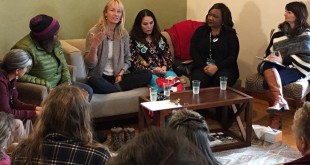~Jennifer Siebel Newsom
A FILM BY JENNIFER SIEBEL NEWSOM
The Mask You Live In follows boys and young men as they struggle to stay true to themselves while negotiating America’s narrow definition of masculinity.
Pressured by the media, their peer group, and even the adults in their lives, our protagonists confront messages encouraging them to disconnect from their emotions, devalue authentic friendships, objectify and degrade women, and resolve conflicts through violence. These gender stereotypes interconnect with race, class, and circumstance, creating a maze of identity issues boys and young men must navigate to become “real” men.
Experts in neuroscience, psychology, sociology, sports, education, and media also weigh in, offering empirical evidence of the “boy crisis” and tactics to combat it.
The Mask You Live In ultimately illustrates how we, as a society, can raise a healthier generation of boys and young men.
DIRECTOR’S STATEMENT
In 2011, I premiered my first film, Miss Representation, which looked at how media contributes to the under-representation of women in positions of power and influence in America. While traveling the world with Miss Representation, I encountered many parents and educators who thanked me for making Miss Representation, but asked, “What about our boys? Isn’t there a boy crises going on? And, how can we help our boys and men be a part of the gender equality solution?” After all, stereotypes hurt everyone, girls and women, boys and men.
As a mother committed to equality – not to mention our children’s health and well- being – these questions sparked my concern and curiosity. So I began research and production on The Mask You Live In to explore what was really going on with masculinity in America and our boys.
From interviews with experts in neuroscience, psychology, sociology, sports, education, and media, and, most importantly, young men and boys themselves, it became clear to me that we need to change the national conversation around healthy masculinity.
It is my intention that The Mask You Live In spark that conversation, and that you, as the film’s audience, will take action with me to provide support: First, let us expand what it means to be a man. Masculinity can be about more than physical force, sexual conquest and economic success. These stereotypes are hurting all of us.
Second, let us as parents and mentors model a healthier form of masculinity. It’s up to us to give the next generation a positive representation of being a man that does not hinder their social-emotional growth.
And finally, we have to support boys in being their whole selves – help boys connect their hearts to their heads so they can find the courage and conviction to stay true to themselves.
But let me be clear. It’s not just about boys, not just about men, and it’s not just about parents and mentors – we’re all in this together. Hopefully, The Mask You Live In inspires each of us to take the challenge and help ourselves and the boys in our lives stay true to themselves and overcome limiting stereotypes.
 See Jane Do Everyday Women Doing Extraordinary Things
See Jane Do Everyday Women Doing Extraordinary Things







